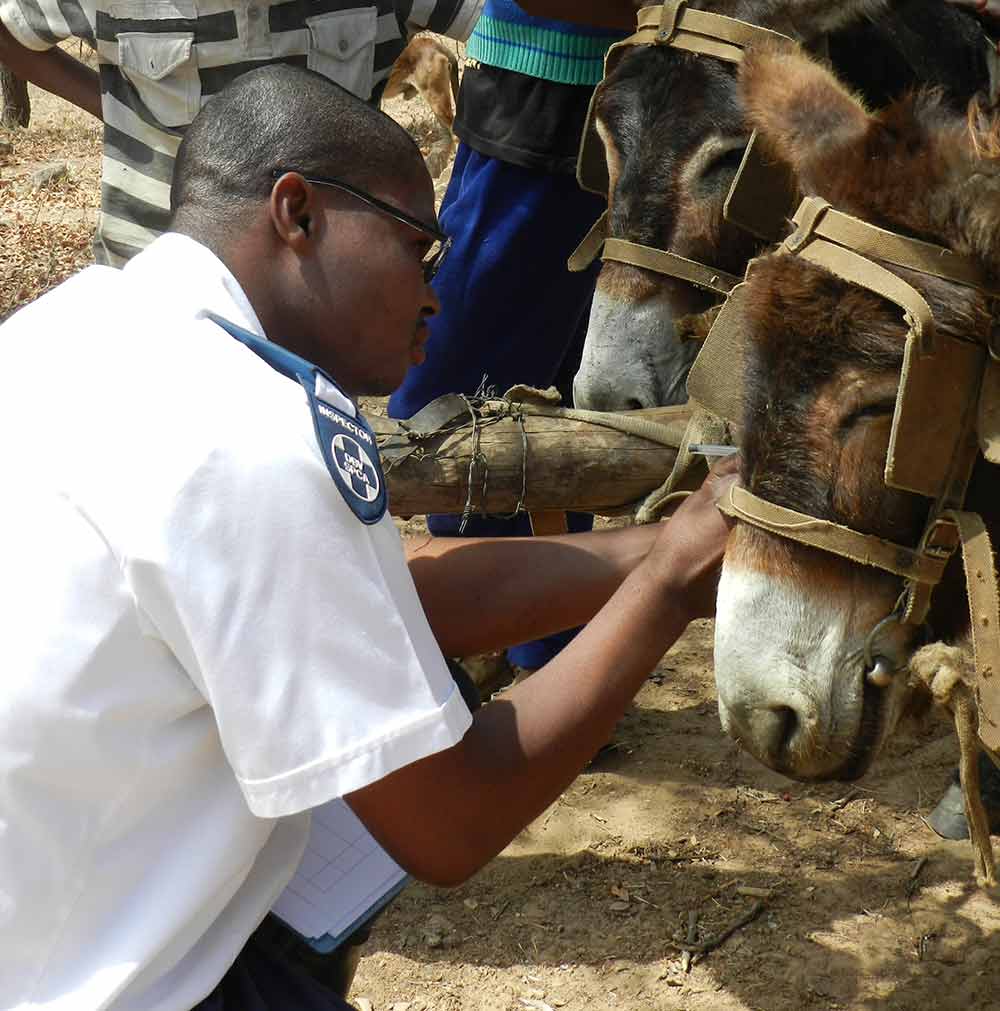Donkeys are widely used throughout the developing world, and it is said that “the donkey sustains life in carrying water, wood and giving service to the poorest and most remote peoples in Africa”. They serve whole communities by pulling carts to transport people, critical food, water, and wood supplies, drawing farming implements for planting, and harvesting crops, carrying packs across rough terrain and for riding.
Donkeys are hardy, affordable, don’t readily show pain and are stoic; they continue to work even under the harshest conditions that other animals would not be able to tolerate. Their kind, gentle dispositions make them ideal for use by women and children. However, because of these factors’ donkeys are also more vulnerable to abuse and ill-treatment and they need protection.
The NSPCA is committed to improving the lives of working donkeys and mules and the National Donkey Protection Project is a holistic approach that addresses different aspects of the life of these animals including:
- primary health care including parasite control and wound prevention.
- harnessing skills transfer – training owners how to make humane harnessing.
- removing inhumane harnessing.
- humane training, handling and use of donkeys.
- community education.
- limiting working hours so the animals have a chance to rest and graze.
- addressing issues of heavy and unsafe carts.
- addressing the replacement of worn unsafe tyres.
- youth education programmes – investing in long term welfare.
We are giving donkey owners a Hand UP not a Hand Out. This gives the donkeys a kinder, brighter future.



